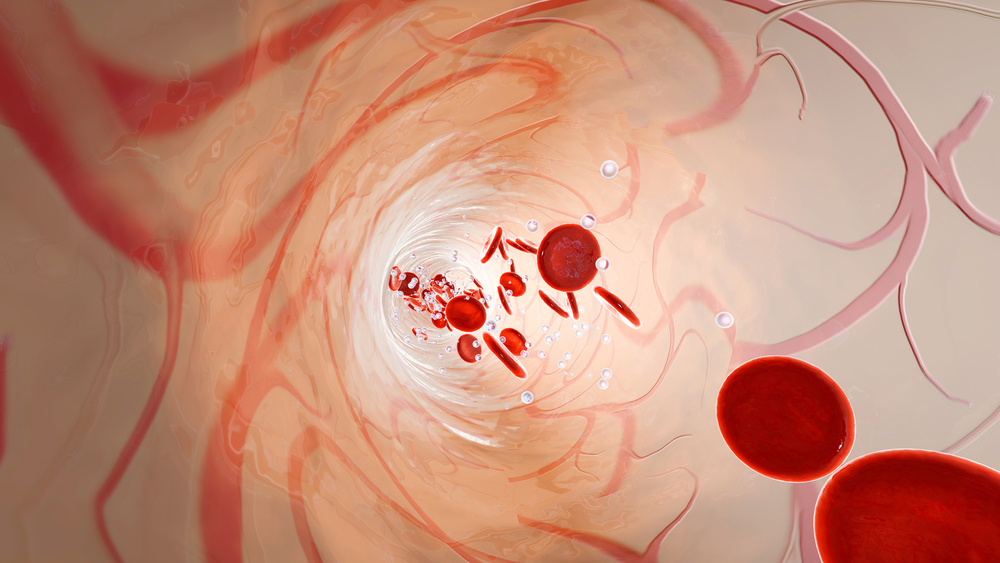APL-2 Increases Hemoglobin Levels, Reduces Hemolysis in CAD and wAIHA Patients, Trial Results Shows
Written by |

APL-2, Apellis Pharmaceuticals’ investigational compound for the treatment of autoimmune hemolytic anemia (AIHA), increases the levels of hemoglobin and reduces red blood cells’ destruction (hemolysis) in patients with cold agglutinin disease (CAD) and warm antibody autoimmune hemolytic anemia (wAIHA), a Phase 2 clinical trial shows.
The findings were announced in an oral presentation titled, “Inhibition of C3 with APL-2 controls haemolysis and increases haemoglobin levels in subjects with autoimmune haemolytic anaemia (AIHA),” (abstract#S899) at the 24th Congress of the European Hematology Association, June 13-16 in Amsterdam, Netherlands.
AIHA is characterized by the production of autoantibodies that attack and destroy red blood cells. It includes two variants, CAD and wAIHA, depending on whether autoantibodies’ binding to red blood cells is easier at lower or higher temperatures, respectively.
Both disorders are caused by a dysregulation in the complement system — a set of more than 20 blood proteins that are part of the body’s immune defenses — that, when overactive, may lead to a series of potentially life-threatening complications, including severe anemia.
APL-2 is an investigational complement system inhibitor that blocks the activity of the C3 protein, one of the central players in the complement system signaling cascade, potentially minimizing or preventing the destruction of red blood cells in patients with AIHA.
The safety, effectiveness, tolerability and chemical properties of the compound are being tested in a group of CAD and wAIHA patients in the ongoing, open-label, Phase 2 PLAUDIT trial (NCT03226678).
The trial has enrolled 13 CAD patients, including 10 who have been on APL-2 treatment for at least 168 days; and 11 wAIHA patients, five of whom were C3-positive and have been treated with APL-2 for a minimum of 168 days.
According to new data presented at the congress, among those with CAD who completed 168 days of treatment with APL-2 (10 patients):
- 80% achieved nearly normal or normal levels of hemoglobin by day 168;
- Mean hemoglobin levels increased from 8.9 g/dL at the beginning of the study to 11.2 g/dL at day 168 (normal range is 12-16 g/dL);
- Mean Functional Assessment of Chronic Illness Therapy (FACIT) Fatigue Score increased from 29.4 at baseline to 39.1 at day 168 (an increase of three points or more is clinically significant);
- Mean lactate dehydrogenase (enzyme whose levels can be used as a readout of tissue damage, LDH), absolute reticulocyte count (number of new red blood cells formed, ARC) and indirect bilirubin (measures the levels of bilirubin that, when elevated, may indicate red blood cells’ destruction, INDBIL) all returned to normal levels after 168 days of treatment with APL-2.
Among those with C3-positive wAIHA who completed 168 days of treatment with APL-2 (five patients):
- Mean hemoglobin levels increased from 9.0 g/dL at the beginning of the study to 11.0 g/dL at day 168;
- Mean Functional Assessment of Chronic Illness Therapy (FACIT) Fatigue Score increased from 38.4 at baseline to 40.8 at day 168;
- Mean LDH, ARC and INDBIL all returned to normal levels after 168 days of treatment with APL-2.
APL-2 was generally safe and well-tolerated by CAD and C3-positive wAIHA patients. No serious adverse side effects related to APL-2 treatment were reported in the course of the trial.
“Patients with autoimmune hemolytic anemias on APL-2 have shown improvement both in important hematologic measures and in quality of life scores, particularly in patients with CAD,” Federico Grossi, MD, PhD, chief medical officer of Apellis, said in a press release.
“These data provide a clear path to move forward with a Phase 3 trial of APL-2 in patients with CAD, which we anticipate commencing in early 2020. We have also seen hematologic improvements in patients with wAIHA receiving treatment with APL-2 when there is significant involvement of the complement pathway. Apellis will continue to evaluate the potential of APL-2 for patients with C3+ wAIHA,” Grossi said.
“This trial demonstrates that APL-2 has the potential to significantly help patients with autoimmune hemolytic anemias when there is complement involvement,” said Bruno Fattizzo, MD, consultant hematologist at Fondazione IRCCS Ca’ Granda Policlinico Hospital, Milan, Italy. Fattizzo presented the findings of PLAUDIT at the EHA congress. “APL-2 represents a promising potential therapy for these patients, the majority of whom have no access to approved treatments,” Fattizzo added.





